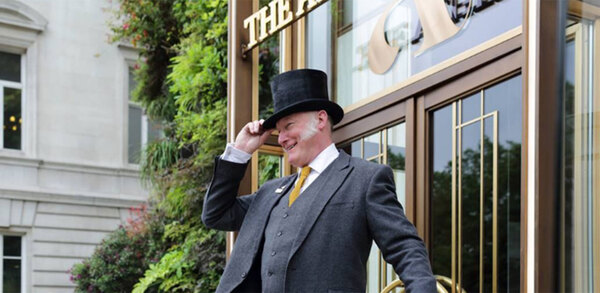'You can try something new': NQ64 Arcade Bars' unconventional approach to looking after its teams
Chantal Wilson will speak at The Caterer’s People Summit this week about challenging orthodoxy in the workplace. She speaks to Emma Lake about upturning the status quo.
Chantal Wilson, interim people director at NQ64 Arcade Bars, rejects the vanilla. She looks for initiatives, changes and perks that will have impact, even if they may not be appreciated universally.
She says: “I focus on initiatives that have a high impact for a small group of people. I’m comfortable that something doesn’t need to appeal to everyone, as long as it really works for those it does appeal to.
“Sometimes you nail it, sometimes you don’t. But I think if you don’t try it, you’re just going to be painting your house magnolia every time. You can do something meaningful and impactful – it just takes a bit of bravery.”
Retro-arcade bar business NQ64 has expanded to 12 UK sites in recent years after attracting investment from Imbiba and ThinCats. Wilson has been working within the business to build a culture that makes improves employees’ everyday experience, recognises their individuality and brings fun to the workplace.
The majority of the business’ employees are in their 20s and when Wilson was looking at the business’ rewards and recognition package, she wanted something that was more specific to the age group. Her solution was a length of service reward of cash for a tattoo or piercing.
“It may not work for everyone, but the people it does work for, it really works for,” she explains.
Ensuring initiatives fit the demographics of the workplace, rather than simply the business’ underlying operational needs, is key for Wilson, who also recently introduced communications solution Workplace by Meta to NQ64.
The programme, from the business behind Facebook, Instagram and WhatsApp, is familiar to employees and encourages informality. Wilson says: “It was about creating an online community for the business. The reason I like the platform is that people get it, and they like it. It doesn’t feel like work.
“We can set up group chats as well as sharing information. For example, our operations director loves a Guinness, so we have a group where people share a picture every time they have a pint of Guinness. It injects fun and humanity into work and it really works with the dynamics of the team.”
For Wilson the benefits of an informal platform for communication are not simply in building business-wide relationships, but in making it easier for employees to share their opinions and for directors to pick up on problems early.
This provides an insight into the people experience, which guides much of Wilson’s approach. She explains: “When you look through the lens of people experience, you start to realise that the foundation of [creating rewarding jobs] it is that people need to know how to do their jobs and want to do them every day.
“The job, the environment and the tools need to be structured to allow people to be great. There’s a lot that feeds into that, and that’s where it gets complicated. It’s my job to create an ecosystem where every bit of feedback comes to the surface, whether that’s from customers, team members or general managers.”
This feedback can highlight problems that require research and careful consideration, but it can also bring easy fixes to the surface. One such complaint highlighted a slight but reoccurring annoyance for team members in every site.
Wilson explains: “We used a typeface called road rage and it was really hard to distinguish between the fours and the nines. The teams said please change this because we’re sick of explaining it. It was just a really irritating pinch point for them.”
She says that such annoyances create friction points when it comes to employees enjoying their work and performing to their best.
“If the everyday experience is a strain because systems are slow, the internet is bad or the job isn’t great then people aren’t able to be great,” she explains. “That’s why I think the online community matters. It becomes natural to just send a message or just post ‘this is shit’. That transparency and visibility just increases with a really good, common platform that’s used and useable. We have 96% daily usage in the business and that builds a culture where you can speak out and then see action. We then make sure we put pressure on ourselves to ask ‘have we fixed this problem for our people?’.”
Focusing on the people experience means looking holistically at the workplace, job roles as well as employees’ social, mental, financial and physical wellbeing. A number of other initiatives have been introduced to support this, including free gym membership for employees in recognition of the demanding physical roles they perform, and a savings initiative that saw team members put aside £30,000 in a year, up from around £2,000 the previous year.
Many of the initiatives Wilson pursues come from observing and understanding the workforce. For example, she would like to introduce a mobile phone insurance programme after noticing the battered handsets carried by many hospitality workers who spend their days working on concrete floors.
However, she’s not eschewing data or traditional support methods. She says: “Data is really important, but it needs to be used in the right places. If you spend the whole time waiting for the data to tell you something, you don’t actually spend any time solving the problem.
“I’m obsessed with solving problems and I work with leadership teams to balance when we have enough to go and when we actually do need to dig a bit more to make sure we’re really validated. “Knowing your people is important, but I think the trick is having trust and confidence that you don’t need to appeal to everyone with everything and you can try something new.”
Wilson will speak at The Caterer’s People Summit, which will be held in London on 9 May. To register for your ticket, click here.


















